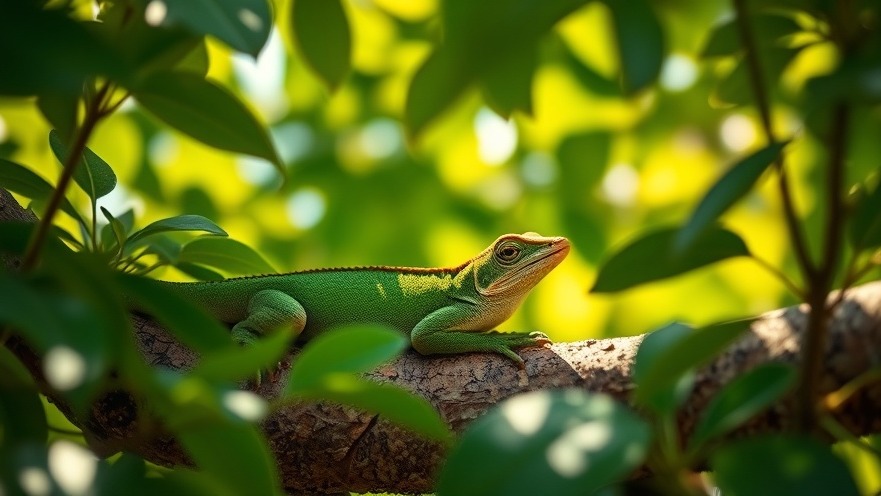
Rediscovering Nature: The Benefits of Eco-Friendly Gardening
As I pottered around my garden, encountering a playful Green Anole, I was reminded of the beauty that life brings when we engage with nature. This small moment of connection isn’t simply a distraction; it’s a gateway into the larger world of eco-friendly gardening that has immense emotional, ecological, and practical benefits for everyone—especially eco-conscious homeowners and modern homesteaders.
Nurturing Biodiversity Through Sustainable Practices
Cultivating a garden does more than beautify our homes; it fosters biodiversity. For example, planting native species like Flameleaf Sumac not only supports local wildlife but also requires less water and maintenance than traditional lawns. By omitting the use of chemicals through toxin-free home upgrades, we further protect our ecosystems—from the gastropods in our gardens to the birds that flit about, ensuring a balanced environment.
Enhancing Energy Efficiency After Gardening
The work invested in an eco-friendly garden culminates in more than just aesthetic appeal—it leads to sustainable home design. By creating shaded areas with diverse vegetation, homeowners can reduce energy consumption inside their homes. This natural sunscreen can lower air conditioning needs, seamlessly tying the outdoors to indoor energy efficiency.
Composting: An Eco-Friendly Practice
After my encounter with the anoles, I felt inspired to revisit my composting habits. Composting turns organic scraps into compost, a fertilizer teeming with nutrients that enhance soil health and reduce waste sent to landfills. Engaging in composting not only closes the waste loop but also provides a free, sustainable amendment for your garden. This practice embodies zero-waste principles and exemplifies how small changes can lead to significant impacts.
Water Conservation through Natural Landscaping
Water conservation is a pressing issue in many regions across the globe. By implementing natural landscaping, we can drastically reduce water use while creating a thriving ecosystem in our backyards. Native plants often require less irrigation and provide habitats for local wildlife, promoting a self-sustaining environment that flourishes with minimal intervention. Incorporating techniques such as rain gardens and xeriscaping can further enhance these benefits.
The Emotional Connection to Gardening
Each encounter with the wild creatures in our gardens—like that Green Anole—deepens our emotional ties to the environment. Gardening encourages mindfulness, offering a respite from the chaos of daily life. The therapeutic benefits of tending to plants, breathing fresh air, and watching life unfold around us remind us that we are not alone in this busy world. By investing in our green spaces, we reclaim a sense of peace that contributes positively to our mental well-being.
Practical Steps Towards an Eco-Conscious Lifestyle
Transitioning to a more eco-friendly lifestyle may seem daunting, but it starts with simple, practical steps. First, educate yourself on native plants suitable for your area. Begin composting your kitchen scraps as you learn about water-efficient gardening methods. Create an action plan that incorporates energy-efficient appliances and practices into your home. The cumulative effect of these actions will not only enhance your garden but also promote a lifestyle aligned with sustainability.
Call to Action: Join the Movement
As you reflect on your gardening journey, consider how these practices can enrich your life. Embrace the beauty of eco-friendly gardening today. Dive into sustainable home design, explore natural landscaping options, and create a haven for biodiversity and outdoor relaxation. Wonder not if it’s you but rather how each plant, creature, and practice integrated into your life can bring you closer to sustainability.
 Add Row
Add Row  Add
Add 




Write A Comment